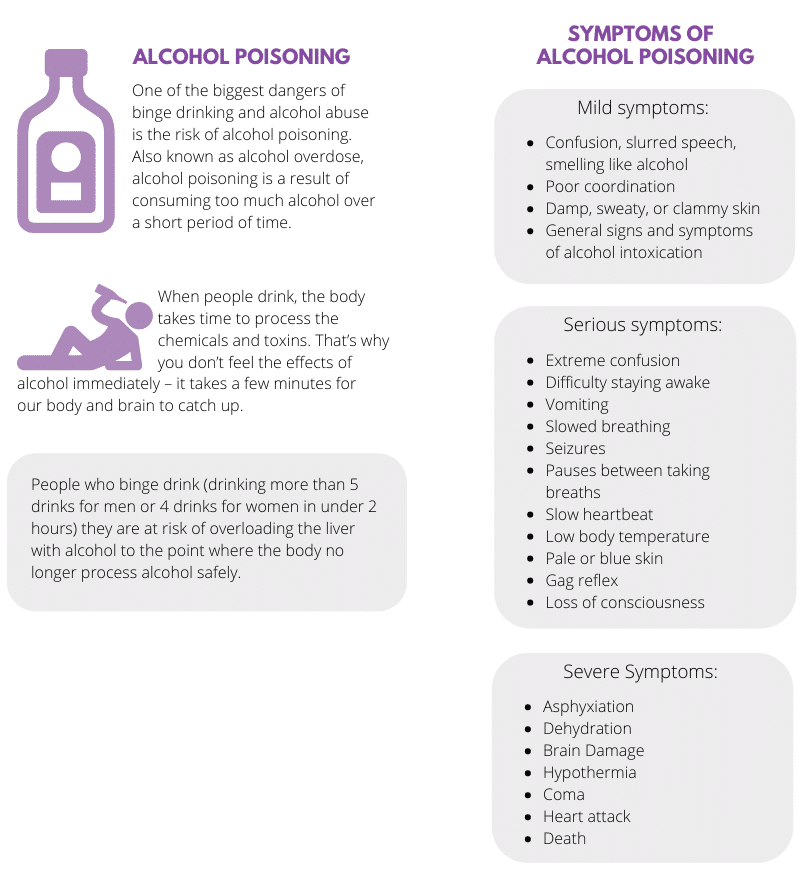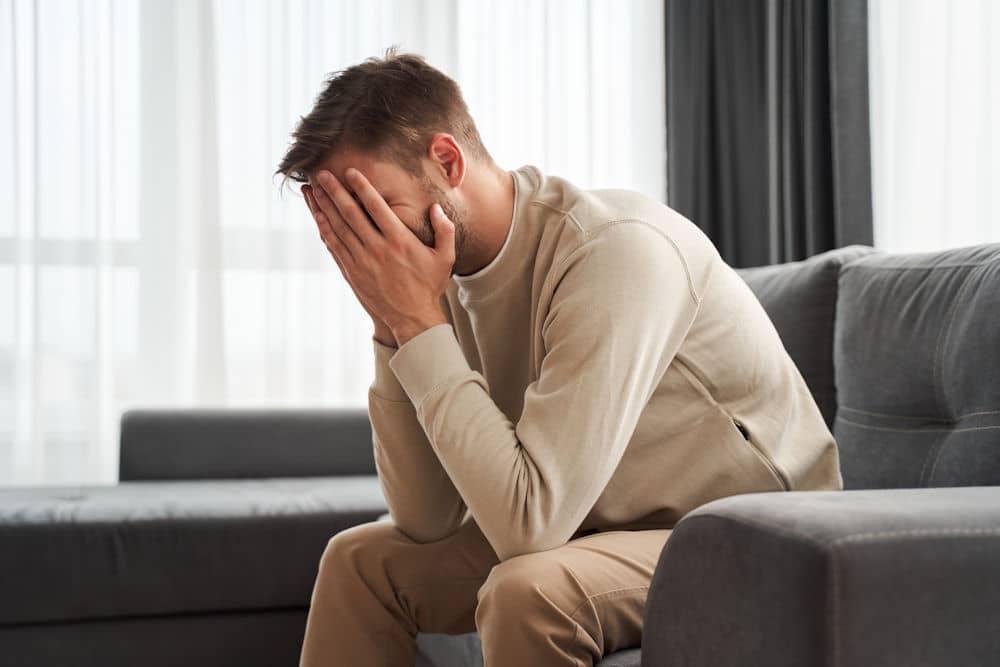One of the biggest dangers of binge drinking and alcohol abuse is the risk of alcohol poisoning. Also known as alcohol overdose, alcohol poisoning is a result of consuming too much alcohol over a short period of time. Although the condition is usually associated with binge drinking, people who are addicted to alcohol may develop such a high tolerance that they drink too much from time to time.
Overdosing on alcohol is a serious matter as the complications are dire and severe. Without prompt medical attention, alcohol poisoning can turn deadly fast. Let’s take a closer look at what causes alcohol poisoning, how to spot it, what to do if you see it happening, and what the medical treatments consist of.
Table of Contents
ToggleHow Does Alcohol Poisoning Happen?
When people drink, the body takes time to process the chemicals and toxins. That’s why you don’t feel the effects of alcohol immediately – it takes a few minutes for our body and brain to catch up. The liver must filter out the alcohol from the blood and it can only filter so much at a time. This is why people are encouraged to adhere to the standard drink guidelines set down by the National Institute on Alcohol Abuse and Alcoholism. People who binge drink (drinking more than 5 drinks for men or 4 drinks for women in under 2 hours) they are at risk of overloading the liver with alcohol to the point where the body no longer process alcohol safely.
When the liver can’t keep up, alcohol poisoning occurs. The Centers for Disease Control and Prevention (CDC) report that there are 2,200 alcohol poisoning deaths each year in the United States. That means approximately six people die of an alcohol overdose each day.
Signs and Symptoms of Alcohol Poisoning
Whether you are an avid party-goer or have a loved one who suffers from alcohol use disorder, it’s important to be able to identify the signs and symptoms of alcohol poisoning. Knowing what to look for will help you intervene in the event that someone needs help.
Symptoms that occur during an alcohol overdose begin as mild and grow worse as time progresses. Early signs and symptoms of alcohol poisoning include:
- Confusion, slurred speech, smelling like alcohol
- Poor coordination
- Damp, sweaty, or clammy skin
- General signs and symptoms of alcohol intoxication
As time goes on and the body tries to keep up with a person’s alcohol intake, more serious symptoms begin to appear. These include:
- Extreme confusion
- Difficulty staying awake
- Vomiting
- Slowed breathing
- Seizures
- Pauses between taking breaths
- Slow heartbeat
- Low body temperature
- Pale or blue skin
- Gag reflex
- Loss of consciousness
While some of these less severe symptoms can be easy to brush off as intoxication or drunken behavior, alcohol poisoning is not something you should take lightly. Minor symptoms can turn fatal in the blink of an eye and lead to dire complications like:
- Asphyxiation
- Dehydration
- Brain Damage
- Hypothermia
- Coma
- Heart attack
- Death
Due to the seriousness of alcohol overdose, it’s important that you don’t delay finding professional help for the person suffering. Similarly, it’s vital to moderate your own alcohol intake and drink responsibly. If you are unable to do you, you might want to consider seeking help for your own alcohol addiction.

What to Do if Someone is Showing Symptoms
If a person is showing symptoms of alcohol poisoning, the most important thing to do is to seek immediate medical attention. Alcohol overdose is fatal if the person is left untreated and it’s a condition that requires professional help. Sometimes, you may have to wait for medical care to arrive, so there are some critical steps you can take to help someone suffering.
First, you should call 911 immediately and explain your situation. Give the dispatcher your name, address, and phone number, as well as a description of the signs that the afflicted individual is exhibiting. While you are waiting on the first responders to arrive, make sure that the person is laying on their side rather than on their back. This prevents the risk of choking on one’s vomit and asphyxiating. Continue monitoring the afflicted individual and stay by his or her side until medical care arrives at the scene. Most importantly, don’t force this individual to walk or drink anything like coffee or more alcohol.
After your friend receives medical care, there is nothing you can do for the moment but take care of yourself, drink in moderation, and educate your friends and family about the potential dangers of binge drinking or heavy alcohol abuse.
Medical Treatment for Alcohol Poisoning
Depending on what a person’s BAC (blood-alcohol concentration) is when they arrive at the hospital as well as the severity of their symptoms, medical staff will provide the proper attention. For less severe cases, physicians may monitor individuals and hydrate them until they stabilize. However, in more serious cases, treatments for alcohol poisoning may include:
- Intubation to assist with breathing
- IV drip with vitamins, glucose, and hydration
- Urinary catheter
- Stomach pumping
People who seek medical treatment and overcome alcohol poisoning are usually able to fully recover. Still, the potential complications aren’t worth the risk. The only way to prevent alcohol poisoning is to remain abstinent or drink responsibly, and if you can’t do those two things, you might have a drinking problem and it’s time to seek help from an alcohol rehab near you.


